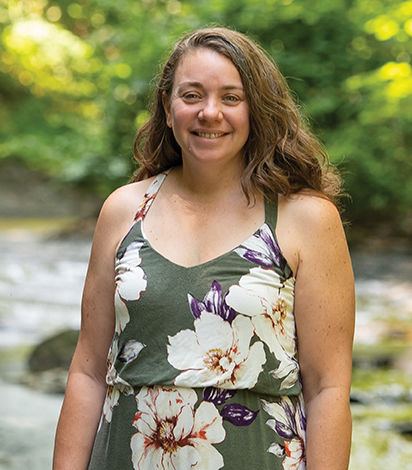A Q&A with Behrend’s new sustainability coordinator
Dr. Sherri “Sam” Mason was just 10 years old when an episode of Diff’rent Strokes, an ‘80s-era sitcom, inspired her life’s work.
“One of the characters, Kimberly, washed her hair with rain water and it turned her hair green, ostensibly because of acid rain,” Mason said. “That show made me realize that how we live our lives can impact the greater world in very negative ways, and I wanted to fix that. From that moment, I wanted to be an environmental chemist.”
Mason, Penn State Behrend’s new sustainability coordinator, made good on that career wish. Before joining Behrend this spring, she was a chemistry professor at the State University of New York at Fredonia. Her groundbreaking research on plastic pollution in the Great Lakes found high concentrations of microplastics, especially within Lake Erie and Lake Ontario. That research led to the Microbeads-Free Water Act of 2015. Mason is now a globally recognized expert on freshwater plastic pollution and a member of a United Nations working group focused on plastic and microplastics in the world’s marine environments.
Science News recently caught up with Mason to learn more about her plans for Behrend:
What is your role as the sustainability coordinator? To help the campus become more sustainable in a variety of ways, from decreasing energy usage or working to get energy from renewable resources, to thinking about how to incorporate sustainability in our curriculum, to leading activities like beach clean-ups and other community engagement projects. I’m also overseeing the Wintergreen Gorge trail improvements project. It’s a big job, but I love it.
Why is sustainability important at colleges? We must practice what we preach. We have to demonstrate sustainability in how we do business if we expect our students to embody it in their own lives and careers.
You see sustainability as a college-wide effort, then? Absolutely. Sustainability is an umbrella that covers all of the schools, programs, and departments across campus. I hope to encourage faculty members to incorporate sustainability into their courses, either as a component, a topic of discussion, or an overarching theme. I also want to encourage all the faculty and staff members on campus to adopt sustainable practices, such as printing less, walking across campus more often, carpooling, and using reusable water containers.
What are three things readers can do to be more sustainable? 1. Consume less. Buy experiences as gifts rather than things. 2. Eat lower on the food chain. Try to eat a few meatless meals a week. 3. Use less plastic.
